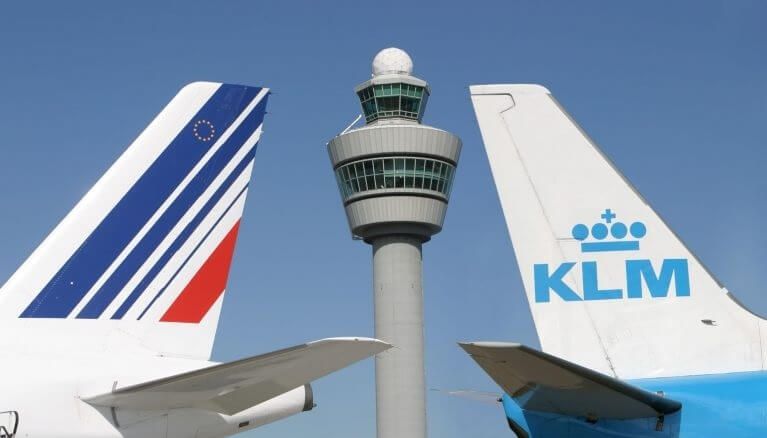AirFrance-KLM declared a total of 10,000 employees are to become redundant as the group looks to minimize its costs.
The Dutch national carrier announced its plans to lay off 1,100 employees in addition to 2,000 who took voluntary redundancy packages. According to a statement by the airline, a further 1,500 positions would need to be eliminated.
The layoffs will touch pilots, cabin crew, ground and office workers as KLM carried 95.0% fewer passengers in Q2 2020. The company appears to be halfway through with corporate downsizing. “Expectations are that the road to recovery will be long and fraught with uncertainty,” read a statement by the company.
“Consequently, a total of 4,500 to 5,000 positions in the entire KLM Group will cease to exist.”
Uncertainty of the current global situation leaves little room for optimism as “KLM keeps open the possibility of further reductions in case the production levels will be revised further down for 2021/2022 than the -20% planned now.” The expectations for recovery were pushed back as far as 2024.
The Dutch national carrier has already contributed to a total of 3,100 layoffs for the Group and expects to have 500 more due to retirement attrition by the end of the year.
Air France-KLM Group’s financial statement reads substantial differences in operating margins for the quarter, attributing Air France Group with a 189.5% decrease and the KLM Group with a 70.3% drop, respectively. Simultaneously, Air France’s 87% decline in turnover was outperformed by KLM’s 75% due to stricter lockdown regulations in France.
The French carrier has announced a restructuring plan of its own, accordingly, aiming to reduce its staff number by 6,560, or 16%, by the end of 2022.
Plans follow to reduce costs as the joint-Dutch and French group looks to delay multiple investment projects to downsize operations significantly. Aside from reduction measures, Air France-KLM is banking on liquidity to pull through the crisis with €14.2 billion ($16.8 billion) at its disposal.
Unlike some other carriers like Singapore Airlines (SIA1) (SINGY), the European airline group failed to report significant improvements in their cargo yields, blaming the drop in global air freight demand. Even with all the drawbacks and corporate restructuring, the Group maintains to delay its medium-term financial ambition by one year.

